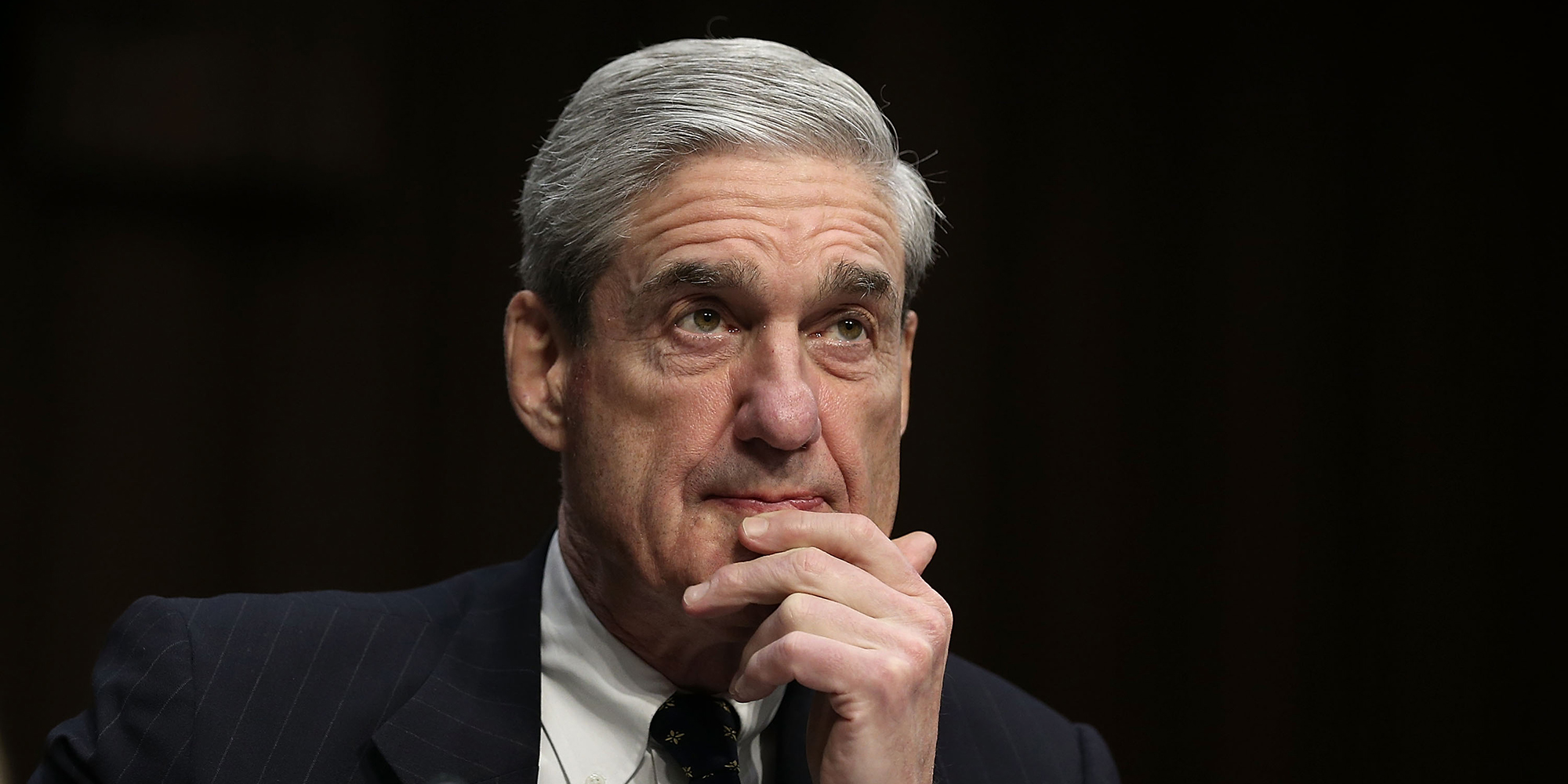- Paul Manafort’s recent plea deal and cooperation agreement with the special counsel Robert Mueller is the latest indication of how the Russia investigation mirrors an organized crime case.
- The hallmark of any prosecutor’s approach to an organized crime case is the use of cooperating witnesses to move up the chain.
- “You start low and you ask people: who did you answer to? Who gave you orders? Who did you report to?” said one Justice Department veteran. “That’s the only way to get to the top of a criminal organization, and that’s exactly what Mueller’s doing.”
- But there are also a few crucial differences that make the Russia probe similar to a complex white-collar investigation.
As the special counsel Robert Mueller works his way through the myriad of threads in the Russia investigation, his approach bears more and more similarities to what prosecutors do when they’re tackling complex organized crime cases.
Mueller’s recent plea deal and cooperation agreement with Paul Manafort, the former chairman of President Donald Trump’s 2016 campaign, is just the latest indication of that.
The hallmark of any prosecutor’s approach to an organized crime case, experts say, is the use of cooperating witnesses.
Going up the ladder is critical in these types of cases because the organization typically has a hierarchical structure and a clear chain of command. It also usually involves wide-ranging, multi-party criminal activity.
"The higher you go, the more insulated those people are," said Elie Honig, a former federal prosecutor from the Southern District of New York who successfully prosecuted more than 100 members and associates of the Sicilian Mafia. "So the best way to penetrate that closed inner circle is by flipping people, and flipping them up."
After investigators get a sense of which players are part of a criminal enterprise, they start by targeting those at the lowest levels.
"If they don't voluntarily cooperate, you get honest leverage on them to compel their cooperation," said Patrick Cotter, a former federal prosecutor who was part of the team that convicted the Gambino crime family boss John Gotti in the 1990s. "You find their criminal conduct and use that to force them to do what they should have done originally, which is to tell the truth."

Honig said he once nailed a case by flipping someone who was the driver for a more powerful person in the organization.
"That led us right up the chain," he said. "And you can see that happening in the Russia investigation."
The first plea deal Mueller's office announced was that of George Papadopoulos, who served as an early foreign policy aide to the Trump campaign. Next, he looped in Michael Flynn, the former national security adviser who admitted to lying to the FBI.
In February, Rick Gates, the former deputy chairman of the Trump campaign, announced that he would be pleading guilty and cooperating with the special counsel. Gates' cooperation led prosecutors upstream, and his courtroom testimony against Manafort helped them successfully convict his former boss on eight counts of financial fraud last month.
Likewise, legal scholars say, Manafort's cooperation, as well as that of Trump's former longtime lawyer, Michael Cohen, will likely help Mueller and New York federal prosecutors get information on an even bigger fish.
"It's a classic strategy used in organized crime," Cotter said. "You start low and you ask people: who did you answer to? Who gave you orders? Who did you report to? That's the only way to get to the top of a criminal organization, and that's exactly what Mueller's doing."
'When you pull at a thread, you never know what you're going to unravel'

That said, there are two critical differences between Mueller's approach to the Russia probe and prosecutors' approach to organized crime cases.
The first is that most criminal enterprises don't have a clear paper trail.
"Organized crime is particularly dependent on insider witnesses, because everything is kind of hidden and done in the shadows," said Alex Whiting, a former Justice Department lawyer who prosecuted organized crime and corruption cases when he worked at the US attorney's office in Boston.
"These cases usually aren't paper heavy because there's no email trail or documentation," he added.
The Russia investigation, by contrast, has often been document-heavy. Prosecutors introduced 400 pieces of evidence at Manafort's first trial in Virginia last month, and they planned to put forward almost three times that amount at his second trial had he not struck a last-minute plea deal.
Similarly, their charging document against Gates extensively cited his financial records, emails, and communications with other witnesses.
In that sense, Whiting said, certain aspects of the Russia probe make it more like a white-collar case.
The other crucial difference is that organized crime cases cases involve activities that clearly cross legal boundaries.
But Mueller's team is sifting through a mix of legal political activity and potentially illegal activity.
The prototypical example of that overlay, Whiting said, is Trump himself.
"The president has the legal authority to fire the FBI director, but is it obstruction if he fired him to hamper an investigation into him?" Whiting said. "Trump has the power to pardon anyone for any federal crime, but is he obstructing justice if he does it to prevent them from testifying? Is collusion a crime?"
"There's a complexity here that you don't often see with organized crime," he added. "In that respect, it's much more like investigating white-collar crime, because the main questions there are, what was the conduct, and did the conduct cross into illegal territory?"
The bottom line in a case like the Russia probe, Honig said, is that there's no way to tell where it will ultimately lead.
"When you pull at a thread, you never know what you're going to unravel."

